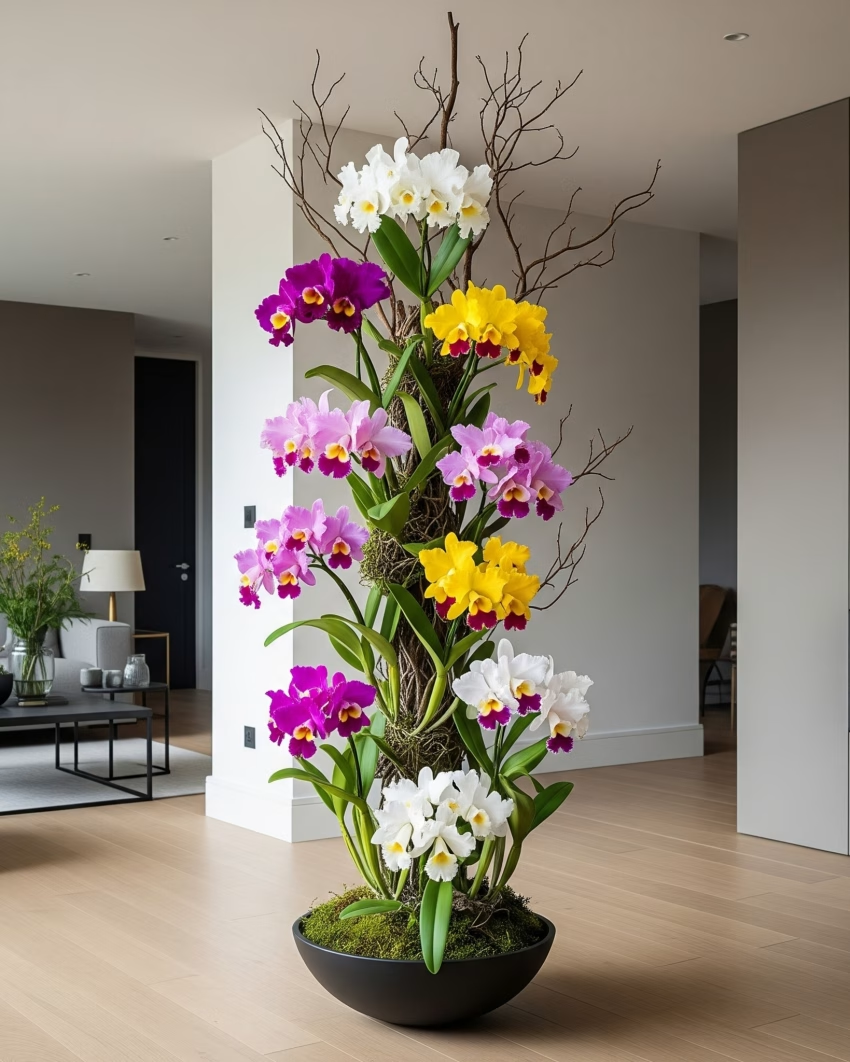Cattleya orchids represent the pinnacle of orchid cultivation, renowned for their spectacular blooms and intoxicating fragrance. These magnificent plants, often called the “Queen of Orchids,” can transform any indoor garden into a tropical paradise. Whether you’re a beginner orchid enthusiast or an experienced grower, mastering Cattleya orchid care will reward you with stunning flowers that can last for weeks.
Understanding Cattleya Orchids: Nature’s Masterpiece
Cattleya orchids originated in the tropical regions of Central and South America, where they naturally grow as epiphytes on tree branches. These orchids are characterized by their large, showy flowers that come in vibrant colors including purple, pink, white, yellow, and orange. The blooms typically measure 4-6 inches across and emit a delightful fragrance that intensifies during morning hours.
Named after William Cattley, a British horticulturist who successfully cultivated the first specimen in 1824, Cattleya orchids have become synonymous with luxury and elegance. Today, thousands of hybrids exist, making them one of the most diverse orchid genera available to home gardeners.
Essential Growing Conditions for Cattleya Orchids
Light Requirements: The Foundation of Success
Cattleya orchids thrive in bright, indirect light conditions. Position your orchid near an east or south-facing window where it receives morning sunlight but remains protected from harsh afternoon rays. The ideal light intensity ranges from 2,000 to 3,000 foot-candles.
Signs of proper lighting include:
- Leaves displaying a light green color with slight yellow tinge
- Sturdy growth with compact pseudobulbs
- Regular blooming cycles
Insufficient light results in dark green foliage and poor flowering, while excessive light causes leaf burn and yellowing.
Temperature Control: Creating the Perfect Environment
Cattleya orchids require specific temperature ranges to flourish:
Daytime temperatures: 70-85°F (21-29°C) Nighttime temperatures: 60-65°F (15-18°C)
This temperature differential is crucial for flower initiation. During winter months, slightly cooler temperatures (65-75°F during day) can help trigger blooming. Avoid placing orchids near heating vents, air conditioning units, or drafty areas that cause temperature fluctuations.
Humidity: Mimicking Tropical Conditions
Maintaining proper humidity levels between 50-70% is essential for healthy Cattleya growth. In dry indoor environments, increase humidity through several methods:
- Place orchids on humidity trays filled with pebbles and water
- Use a room humidifier near your orchid collection
- Group multiple plants together to create a microclimate
- Mist the air around plants (avoid wetting leaves directly)
Monitor humidity levels with a hygrometer to ensure optimal conditions year-round.
Watering Cattleya Orchids: The Art of Precision
Click on “Next” to continue reading.


